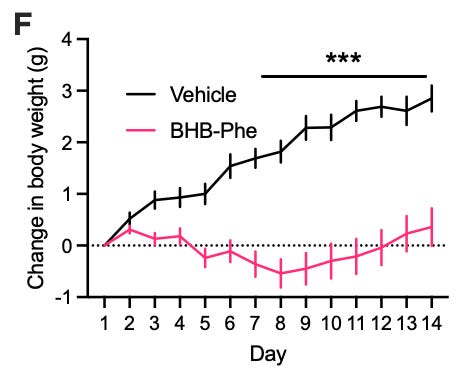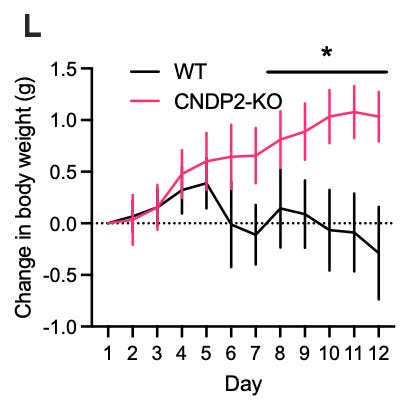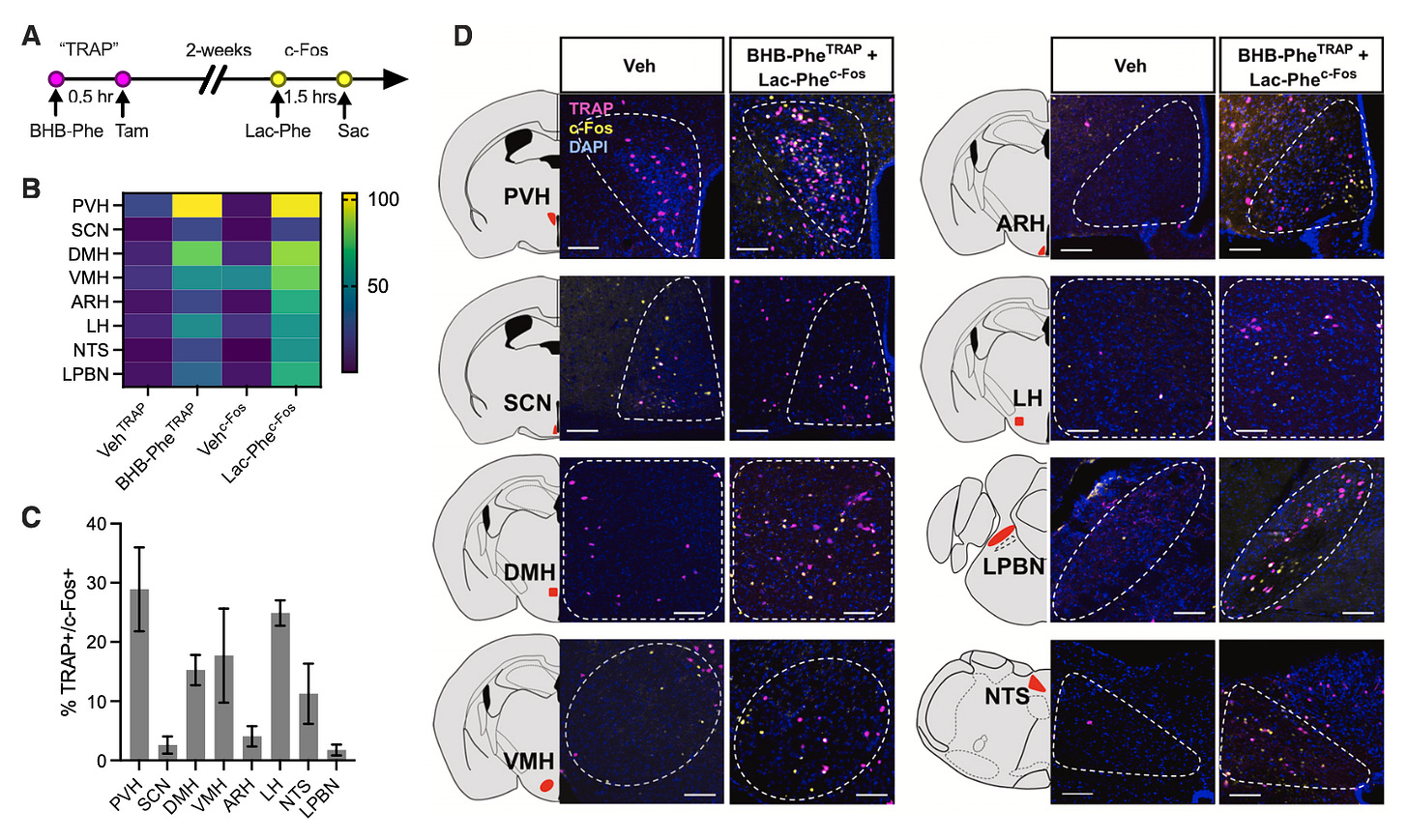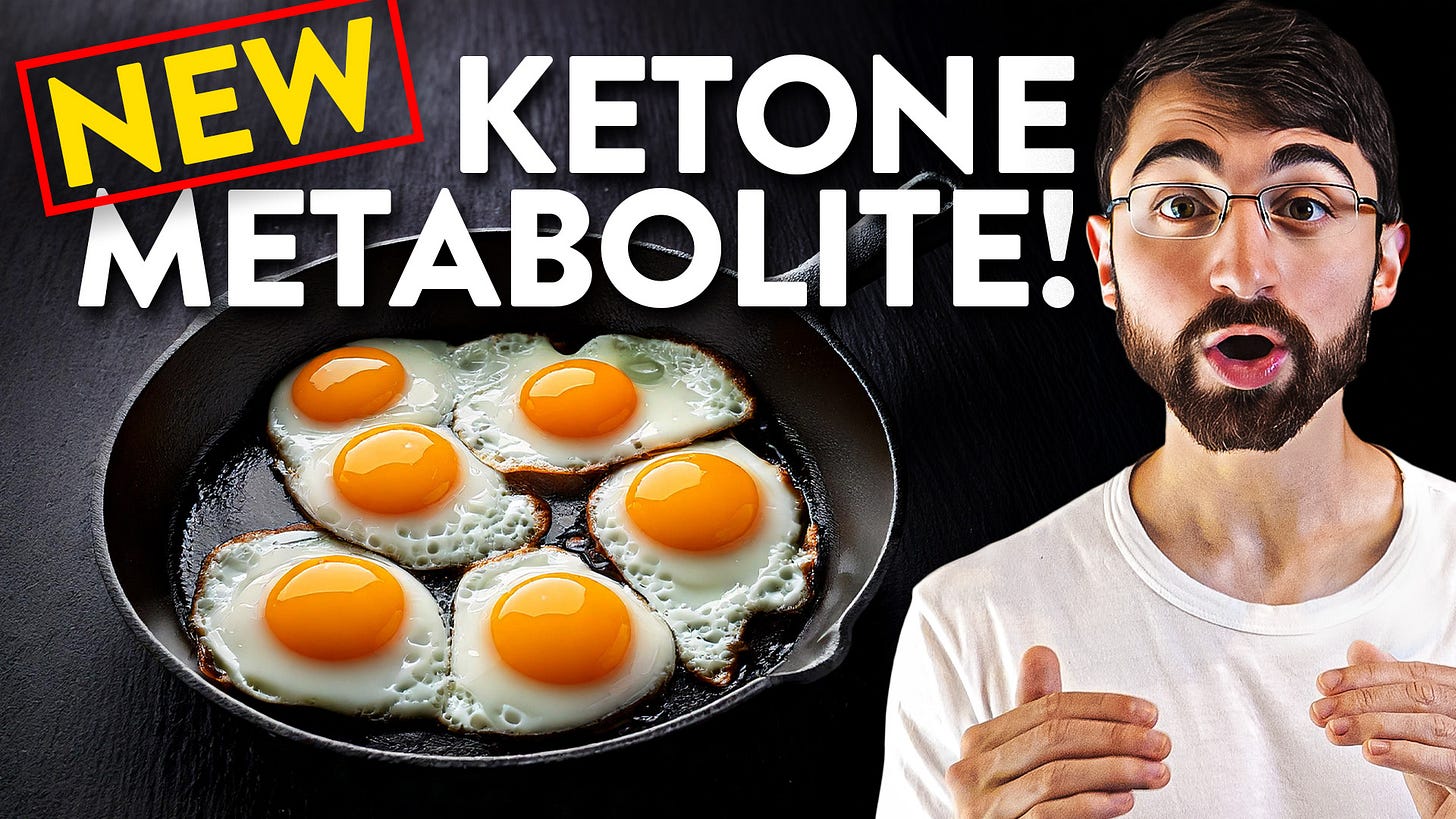Discovery of a New Metabolite Made on Ketogenic Diets
New data last week in Cell reveal that BHB-Amino Acids, made on a ketogenic diet or with fasting or exogenous ketones, exert appetite suppressing effects. Let's break it down...
This letter will review new data, and suggest one reason why some people might lose more weight on ketogenic diets than others.
The research, just publish in Cell last week, documents the discovery of a byproduct of ketone body, beta hydroxybutyrate (BHB), metabolism: The BHB-Amino Acids.
At a high level
The enzyme carnosine dipeptidase 2 (CNDP2) combines the ketone body, BHB, with amino acids to make BHB-amino acids. This pathway appears conserved in mice and humans.
BHB-amino acids levels increase in response to ketogenic diets, fasting, or exogenous ketones.
BHB-amino acids activate different brain regions to reduce food intake and promote weight loss.
Now… for some more details…
Background
The enzyme, CNDP2, is primarily expressed in the kidney and gut cells and was previously known as the enzyme that generated the appetite suppressing compound Lac-Phe, a combination of lactate and the amino acid, Phenylalanine, that is thought to mediate the appetite suppressing effects of exercise the drug metformin on weight loss.
But this CNDP2 enzyme is “multipurpose,” i.e. it not only combines lactate with amino acids but can also only combines the ketone body, BHB, with amino acids, as shown in the paper, the most prevalent of which is BHB-Phe.
The researchers show that ketogenic diets, fasting and exogenous ketones (ester) each increase levels of BHB-Phe.
Although BHB-amino acids are made in humans and present in human blood, to demonstrate causality it’s helpful to use mouse models.
Direct administration of a ketone supplement or BHB-Phe decreased food intake and prevented weight gain (pink vs black).
However – and importantly – mice who had been modified to have the CNDP2 gene knocked out (pink, below), and thus could not generate BHB-Phe, did not respond to ketone supplementation with appetite suppression.
To reinforce the point, ketone supplementation AND/OR a ketogenic contributed to relative weight loss in animals with functional CNDP2 that could make BHB-Phe. But when this ability to make BHB-Phe was eliminated, so too were the appetite-reducing anti-obesogenic effects of ketones.
This suggests that ketogenic interventions reduce appetite, at least in part, through the generation of BHB-Phe.
The also found that BHB-Phe activates various brain regions I the hypothalamus and brainstem that control feeding. However, the neuron populations appear largely distinct from those activated by Lac-Phe, and also don’t appear to act through other appetite suppressing pathways assessed in this study, including the GLP-1 pathway.
Thus, how exactly BHB-Phe reduces appetite and contributes to weight loss remains somewhat of a mystery.
Conclusion
These data reveal a new secondary metabolite of ketone body metabolism, BHB-Phe, that acts on the brain to reduce appetite and contribute to weight loss.
Of interest and clinical consequence, it’s very possible that there are variations in the human CNDP2 gene, leading some people to respond more strongly to ketogenic interventions (ketogenic diet, fasting, and supplementation) with more or less appetite reduction.
This could be an explanation for why ketogenic diets may work better for some and not others.
Full Video Coming Soon. But Newsletter Subscribers get Advanced Knowledge :) …











Is BHB-Phe available to take, as are exogenous ketones? Sounds like THE molecule to have!!
And on another note, can you advise concentration and frequency of exogenous ketones, which can induce and sustain ketosis, on a low carb/not necessarily-ketogenic diet?
I love your work Nick! you are the best for new info!! And I cant wait to meet you in St Moritz!
Thank you
An opinion without the evidence is just noise. With evidence, the opinion warrants examination. Too many "influencers" are heavy on the opinion and light on the evidence. They are noise.
Please keep up the good work which is greatly appreciated!